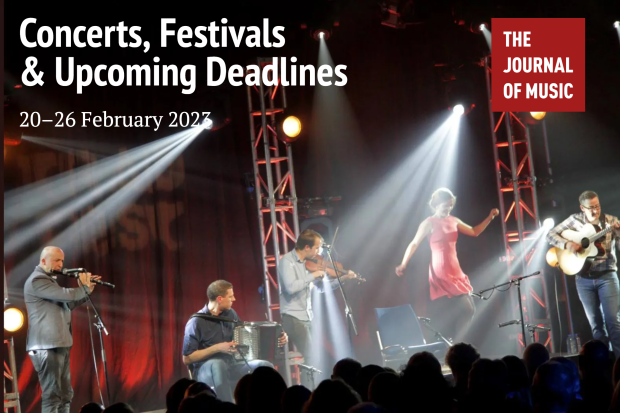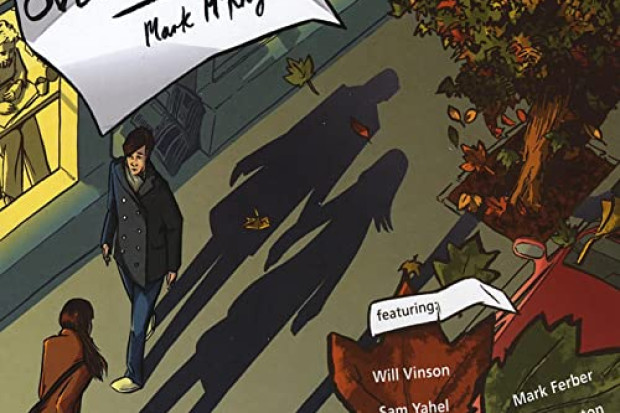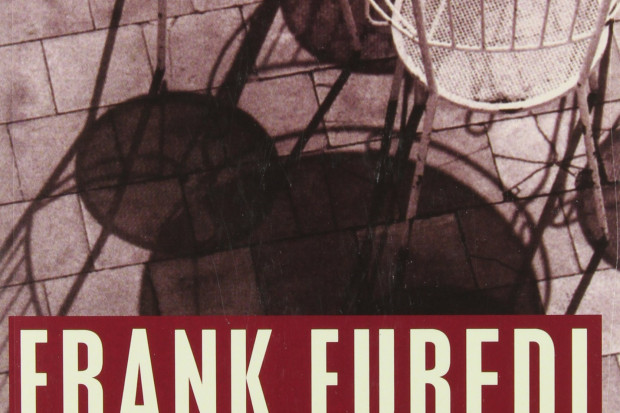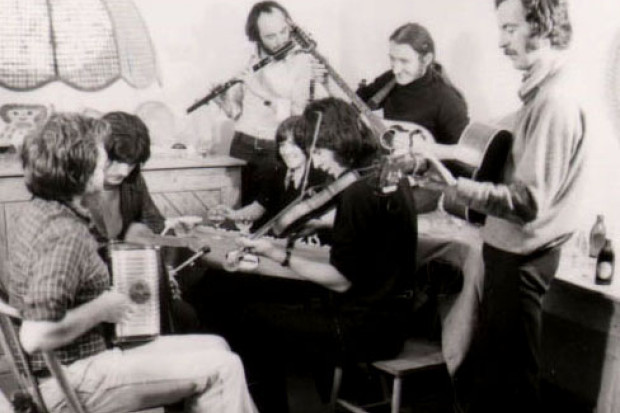RTÉ's First RTÉ Living Music Festival
Over the first course of a working lunch in August 2001, RTÉ’s music director Niall Doyle asked me if I would assume the artistic directorship of a major contemporary music festival to be held in October 2002. My immediate reaction was negative, but by the time dessert arrived I had changed my mind. The reason? Niall had responded affirmatively to my query as to whether Luciano Berio (b. 1925) could be invited as guest composer. For me this is like playing host to Bach, Debussy, or Mahler. Berio has been an inspiration to me since first I heard his orchestral piece Allelujah II through a hissing cloud of static from the BBC Third Programme in the mid 1960s.
In Darmstadt in 1969 I heard one of the first performances – by its dedicatee Heinz Holliger – of the Sequenza VII for oboe. Here a sustained b-natural background acts as a fulcrum to the essentially atonal writing for oboe in a richly paradoxical way. I came back to Ireland and wrote what was in effect my Opus I No. I, the first Orphic Piece for piano. Here a recurrent diad of b-natural/a-sharp acts as a fulcrum to the predominantly atonal piano-writing in a productive rip-off of the Sequenza. In a sense Berio’s little study acted as a catalyst for my entire output since then.
Five years later, with four wasted years at UCD behind me, I went to study composition with Gerald Bennett (a Berio enthusiast) in Basel, Switzerland. I saw Berio conduct a programme consisting of the exquisite orchestral piece Bewegung (at present undergoing revision, which stymied my plans to include it in RTÉ’s festival), the Concerto for 2 Pianos, and the celebrated Sinfonia with the Swingle Singers. I was bowled over, and borrowed a number of scores from the library of the Musikakademie, including Epifanie for soprano and orchestra, Tempi Concertati for chamber orchestra, and the Sequenza IV for piano. Berio’s writing for piano, with its nervous trills and tremoli, hugely affected my own writing for that instrument in works like my Sonata I (1974) and Compact for piano and orchestra (1975).
Nonetheless, a more dubious influence had taken over: Stockhausen, with whom I went to study at the Cologne Musikhochschule in 1976. While in Cologne I attended the première of Berio’s 56’ Coro for chorus and orchestra and was so deafened by my new allegiance that I dismissed the work out-of-hand. I now consider it to be not merely Berio’s masterpiece of the 1970s but one of the outstanding achievements of any representative of that extraordinary generation of composers born in the 1920s (Boulez, Stockhausen, Nono, Xenakis, Ligeti). Berio expert David Osmond-Smith (who will give a number of workshops during the festival) might have been thinking of Coro when he wrote, ‘There are a fair number of living composers who can fill an hour with a sequence of fascinating events, but few who can make an hour’s music a single, richly complex event.’ Forty singers are paired with forty melody instruments (26 wind and 14 strings) plus a quartet of piano, electric organ, and two percussion. The text is a collage juxtaposing folk texts with excerpts from Residencia en la Tierra by the left-wing Chilean poet Pablo Neruda, including the cry – still all too relevant in these days of global violence from Kabul to Jenin to Caracas – ‘Venid a ver la sangre por las calles’ (‘Come and see the blood in the streets’). Coro fuses political idealism with intellectual rigour, lyricism, and an extraordinary variety of textural colour that is altogether typical of Berio at his best. Although the work is not included in our festival, I hope its Irish première won’t be much further delayed.
Berio has devoted much of his attention to music theatre, ranging from the 35-minute Laborintus II (1965) for voices, instruments and tape (performed in our festival by the London Sinfonietta and Sinfonietta Voices) to full-scale operas or anti-operas such as Un Re in ascolto (A King listens, 1979-83, text by Italo Calvino) to Outis (1996, text compiled by Dario Del Corno). The latter is a kind of summa of Berio’s achievement, a non-linear exploration of the Odysseus/Ulysses narrative (‘Outis’, ‘No-one’, is how the wily Odysseus introduces himself to the ill-fated cyclops Polyphemus) ranging across historical epochs from ancient Greece to the Holocaust, involving an astounding multiplicity of musical techniques and styles.
Always full of surprises, Berio has recently devised a new completion of Puccini’s unfinished final opera Turandot. It is as impossible to imagine any other avant-garde composer addressing himself to such a task as it is to suggest anyone better qualified to accomplish it successfully, and Berio’s acclaimed version seems fair set to become the standard one. I feel privileged to be associated with Luciano Berio’s first visit to this country, and look forward to conducting a public interview with him on the final day of the festival (Sunday, 27th October).
Published on 1 September 2002
Raymond Deane is a composer, pianist, author and activist. Together with the violinist Nigel Kennedy, he is a cultural ambassador of Music Harvest, an organisation seeking to create 'a platform for cultural events and dialogue between internationals and Palestinians...'.















